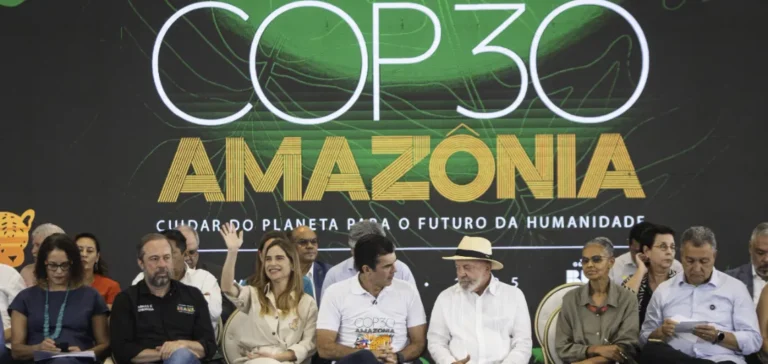Preparatory negotiations for the Conference of the Parties (COP30), held in Bonn in June, were marked by repeated deadlocks and ongoing disagreements regarding financial commitments by developed countries to the Global South. The withdrawal of the United States from the process intensified tensions, while the Brazilian presidency seeks to refocus the global climate agenda.
Initial blockage and growing doubts over the COP process
From the outset, talks were delayed by two days due to a dispute over the agenda, following requests from several developing nations to include financing obligations by wealthy countries and address the effects of trade mechanisms, such as the European Union’s Carbon Border Adjustment Mechanism (CBAM). The standoff reignited criticism of the COP system, which is increasingly viewed as cumbersome and inefficient.
The Brazilian presidency used the impasse to release a letter urging the streamlining of the process. Proposals to limit national delegations and replace the consensus rule with majority voting were raised but no decision was made. The topic is expected to return to the forefront at Belém.
Adaptation: technical progress and structural disagreements
The reduction in the number of indicators under the Global Goal on Adaptation (GGA), from more than 9,000 to 490, was among the few tangible outcomes. However, disagreement over whether “means of implementation” — including finance and technology transfer — should be considered core indicators prevented the adoption of a final text.
Developing countries insisted on concrete financial support to develop and implement National Adaptation Plans (NAPs). No consensus was reached, and the matter was deferred to COP30, with outcome documents containing extensive reservations or replaced by informal notes with no legal standing.
Mitigation and national contributions: uncertain calendar
The submission of new Nationally Determined Contributions (NDCs), originally due in February, was largely missed. The deadline was extended to September, after which the United Nations Framework Convention on Climate Change (UNFCCC) secretariat will assess alignment with the 1.5°C target.
The Global Stocktake (GST) presented at COP28 — calling to triple renewable capacity, double energy efficiency improvements, and begin phasing out fossil fuels — remains contentious. Several Southern countries demand these ambitions be paired with financing guarantees, linking their support to the scale of external assistance.
Loss and Damage Fund stalls
Less than $350 million has been disbursed out of the $768 million pledged to the Loss and Damage Fund, hosted by the World Bank. Initially praised at COP28 in Dubai, the mechanism is now under sharp scrutiny. Multiple delegations called for an independent evaluation under the Warsaw International Mechanism.
Debates are expected to intensify at Belém, particularly over whether a specific allocation to the fund should be enshrined in the New Collective Quantified Goal (NCQG), whose details remain unclear since its adoption in Baku.
Baku-to-Belém roadmap: between ambition and realism
Brazil and Azerbaijan are leading the development of a roadmap aimed at identifying steps to reach $1.3tn in climate finance by 2035, in response to an NCQG seen as insufficient by the Global South. Discussions in Bonn explored potential mechanisms including multilateral bank reforms, lower capital costs, and the creation of climate finance-technology “clubs”.
The next steps will depend on developed countries’ ability to formally integrate these demands into negotiations. The outcome will be critical to the credibility of the COP process in the eyes of the most vulnerable countries.
Pressure mounts on Brazil as fossil fuel producer
The Brazilian regulator’s announcement of a forthcoming auction of 172 oil blocks — over 40 of them in the Amazon region — drew international criticism. The contrast between these exploration plans and the transition objectives promoted at COP has created confusion, even within the organising committee. The Brazilian government defends its stance by citing the right to energy development, a position echoed by other producing nations.






















